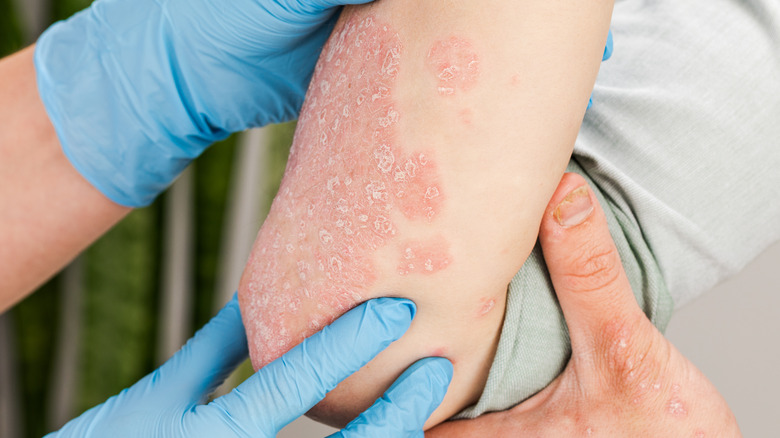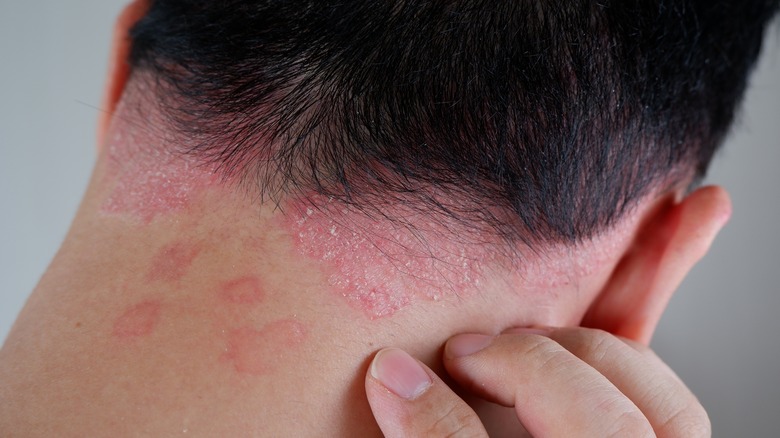What Are The Different Types Of Psoriasis?
Psoriasis is a painful skin disease that affects approximately 125 million people around the world, with over eight million cases in the U.S., according to the National Psoriasis Foundation. In some, the disease can turn into psoriasis arthritis, which significantly affects the quality of life and interferes with routine activities. If it isn't managed properly or diagnosed in a timely manner, psoriasis can ultimately lead to more dangerous co-morbidities, such as heart disease, high blood pressure, and type 2 diabetes.
The Mayo Clinic defines psoriasis as an inflammatory condition that makes the skin appear reddish, scaly, and prone to bleeding. Some people may even experience pitted nails. The patches usually develop around the knee and elbow joints, as well as the neck, chest, abdomen, and scalp. So far, there's no cure for psoriasis. However, with the right medication and lifestyle changes, you can manage the condition's symptoms and reduce itchiness.
How to identify the different types of psoriasis
There are seven different types of psoriasis, which usually appear on the chest, neck, back, limbs, hands, or feet. The first is the plaque psoriasis in which the skin has multiple white embossed-like marks accumulated with dead cells (via WebMD). The second type is guttate psoriasis, which occurs in about 2% of the cases. This condition results in various small-sized red or pink dots scattered on the body and is often triggered by infections, medications, or stress, reports WebMD.
The third type is inverse psoriasis, which develops in the folds of your skin, such as in the armpits or under the breasts, according to Healthline. The marks may appear large and red, but without the scales, as these areas are normally moist from sweat. Another type is pustular psoriasis, which results in numerous pus-filled reddish spots on the feet, hands, or body. You may also experience fever, weakness, and other symptoms similar to flu, warns Healthline. Erythrodermic psoriasis is among the rarest forms, which affects a large part of your body and creates scaly marks similar to burns. It may cause severe itching and a temperature imbalance. Talk to your doctor for more insight into managing psoriasis.


